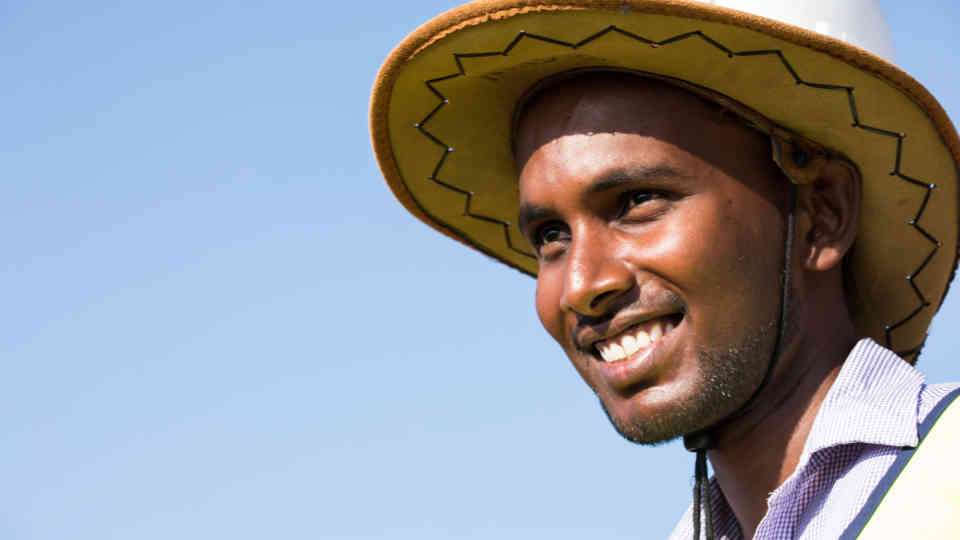Image above: Za’atari’s mental health clinic in Jordan.
To report misconduct please contact the UNHCR’s Inspector General Office.
Sexual exploitation and abuse (SEA)
Sexual exploitation is defined as an actual or attempted abuse of someone’s position of vulnerability (such as a person depending on you for survival, food rations, school, books, transport or other services), differential power or trust, to obtain sexual favours, including but not only, by offering money or other social, economic or political advantages. It includes trafficking and prostitution.
Sexual abuse means the actual or threatened physical intrusion of a sexual nature, whether by force or under unequal or coercive conditions. It includes sexual slavery, pornography, child abuse and sexual assault.
UN personnel are obligated to report whenever they reasonably suspect that SEA has occurred by a fellow worker, whether in the same agency or not and whether or not within the United Nations system.
Sexual harassment (SH)
Sexual harassment affects personnel and is defined as any unwelcome conduct of a sexual nature that might reasonably be expected or be perceived to cause offence or humiliation. When such conduct interferes with work, is made a condition of employment or creates an intimidating, hostile or offensive work environment. Sexual harassment may occur in the workplace or in connection with work. While typically involving a pattern of conduct, sexual harassment may take the form of a single incident. In assessing whether the conduct causes offence, the perspective of the victim shall be considered.
Sexual harassment can take various forms – from looks and words though to physical contact of a sexual nature. Examples of sexual harassment (non-exhaustive list) include: attempted or actual sexual assault, including rape; sharing or displaying sexually inappropriate images or videos in any format; sending sexually suggestive communications in any format; sharing sexual or lewd anecdotes or jokes; making inappropriate sexual gestures, such as pelvic thrusts; unwelcome touching, including pinching, patting, rubbing, or purposefully brushing up against another person; staring in a sexually suggestive manner; repeatedly asking a person for dates or asking for sex; rating a person’s sexuality; making sexual comments about appearance, clothing, or body parts; name-calling or using slurs with a gender/sexual connotation; making derogatory or demeaning comments about someone’s sexual orientation or gender identity.
The key difference between SEA and SH is the victim: in the case of SEA, the victim is a person of concern, or a member of the local or host community. In the case of SH, the victim is a fellow humanitarian worker, whether working with UNHCR or with another agency or partner organization. In both cases of SEA and SH, the perpetrator is a fellow humanitarian or development worker. Both forms of sexual misconduct are unacceptable, and UNHCR is committed to eradicating them from our operations and offices and ensuring that all victims receive the support they need.
In areas affected by conflict, natural disasters and other emergencies, people trust aid workers to assist and protect them.
The vast majority do so with professionalism and integrity. But some aid workers abuse their position of power through the sexual exploitation and abuse of those who depend on them, including children. These acts are unacceptable and violate criminal laws.
Sexual exploitation refers to any actual or attempted abuse of a position of vulnerability, differential power, or trust, for sexual purposes, perpetrated by aid workers against the children and families they serve. Sexual abuse is the actual or threatened physical intrusion of a sexual nature, whether by force or under unequal or coercive conditions, perpetrated by aid workers against the children and families they serve.
When a child is subjected to related misconduct at the hands of someone other than an aid worker, this is defined as sexual violence. Sexual violence against children occurs in every country, across all segments of society.
Women and children in emergency settings face the greatest risk of sexual exploitation and abuse. High levels of need resulting from scarce resources, food shortages or economic insecurity can intensify the power imbalance in emergency settings, raising the possibility of sexual exploitation and abuse by humanitarian aid workers on whom communities depend, or by peacekeepers providing protection.
Humanitarian assistance programmes should be designed and delivered not only to mitigate the risk of sexual exploitation and abuse, but to provide the necessary response when abuse occurs.
Our efforts on preventing and responding to sexual exploitation and abuse in international assistance occur in the context of our humanitarian, development and peace and stabilization work. Visit the Peace and Stabilization Operations Program to learn more about our work in peace and stabilization, including the Women, Peace and Security initiative.
Everyone working in international assistance has the responsibility to step up and address these issues by adopting international best practices. By doing so, we can all help reduce the number of cases of exploitation and abuse and ensure victims and survivors receive the support they need.
We are committed to preventing and responding to sexual exploitation and abuse in the delivery of international assistance. This abuse of power and trust violates human rights and undermines our efforts to address gender inequalities and to empower women and girls to reach their full potential. We have zero tolerance for individuals who abuse their position to sexually exploit or abuse the very people they are there to help.
Defining sexual exploitation and abuse
According to the U.N. Secretary-General’s bulletin on protection from sexual exploitation and abuse:
- Sexual exploitation refers to any actual or attempted abuse of a position of vulnerability, differential power, or trust, for sexual purposes, including, but not limited to, profiting monetarily, socially or politically from the sexual exploitation of another.
- Sexual abuse refers to an actual or threatened physical intrusion of a sexual nature, whether by force or under unequal or coercive conditions.
Sexual activity with children (persons under the age of 18) is prohibited regardless of the age of majority or age of consent locally. Not knowing or mistaking the age of a child is not a defence.
Return to top
Canada’s international commitments
We are committed to continuing to work with other donors and partner organizations to prevent, address and respond to sexual exploitation and abuse across international assistance. In June 2018, we used the platform of our G7 presidency to negotiate the Whistler Declaration on Protection from Sexual Exploitation and Abuse in International Assistance. Under this declaration, G7 development ministers committed to working together with their partners to protect individuals from, and respond to, sexual exploitation and abuse in international assistance. We are also a signatory to the Tidewater Joint Statement on Combating Sexual Exploitation and Abuse in the Development and Humanitarian Sectors (PDF version, 111 KB). Finally, in October 2018, we endorsed donor commitments at the Safeguarding Summit hosted by the United Kingdom’s Department for International Development.
We are a member of the Organisation for Economic Co-operation and Development’s Development Assistance Committee (OECD-DAC) Reference Group on Sexual Exploitation and Abuse. Building on the commitments we made with other donors, the Reference Group prepared the OECD-DAC Recommendation on Ending Sexual Exploitation, Abuse, and Harassment in Development Co-operation and Humanitarian Assistance, adopted in July 2019.
We are also a member of the United Kingdom’s Technical Working Group on Safeguarding.
Return to top
Canada’s work with the United Nations
We continue to work with the UN to support initiatives that strengthen the international response to sexual exploitation and abuse. We have supported the UN’s efforts by providing financial support to the UN Office of the Special Coordinator on improving the United Nations response to sexual exploitation and abuse and to the UN Trust Fund in support of victims of these acts. Prime Minister Justin Trudeau is a member of the UN Secretary-General’s Circle of Leadership and supports the Collective Statement of its members. We are also a signatory to the UN Secretary-General’s Voluntary Compact on preventing and addressing sexual exploitation and abuse and the Action for Peacekeeping Declaration.
We are a strong voice for the full implementation of the UN’s zero tolerance policy and have urged troop and police contributors, as well as UN agencies, to uphold their obligations to investigate allegations and take action. We strongly believe that there should be a system-wide approach to combatting sexual exploitation and abuse across all UN bodies and member states.
We are also working to combat sexual exploitation and abuse through our chairing of the:
- Group of Friends of Women, Peace and Security
- Group of Friends of Children and Armed Conflict
- Geneva Group on Gender
Return to top
Canada’s work with Canadian civil society partners
Global Affairs Canada’s civil society partners are committed to addressing sexual exploitation and abuse in the delivery of international assistance. The department works closely with Cooperation Canada Steering Committee to Address and Prevent Sexual Misconduct. This partnership aims to share best practices and increase partner capacity for prevention and response, especially among smaller organizations.
Many Canadian development and humanitarian organizations have signed Cooperation Canada’s Leaders’ Pledge on Preventing and Addressing Sexual Misconduct (PDF version, 188 KB). In signing the pledge, these organizations commit to implementing policies and practices that protect their own staff, volunteers and the communities they serve from sexual exploitation and abuse.
Return to top
Canada’s expectations of implementing partners
We expect recipients of Canadian funding to follow international best practices and to take appropriate measures to prevent and respond to sexual exploitation and abuse. The Minister for International Development sent a letter to all Canadian international assistance partners receiving Canadian funding in May 2018 describing these expectations.
One of these expectations was for partners to have publically available codes of conduct covering sexual exploitation and abuse. The department’s General Terms & Conditions for Contribution Agreements require partner organizations signing a new contribution agreement for international development assistance to have or develop a publicly available Code of Conduct on prevention and response to sexual exploitation and abuse.
Our guidelines on applying for International Humanitarian Assistance, outline how partners must align their codes of conduct with the Inter Agency Standing Committee’s six core principles relating to sexual exploitation and abuse and the accompanying eight minimum operating standards.
Since September 1, 2019, we require partner organizations to have a code of conduct to prevent and respond to sexual exploitation and abuse in place to apply for development and humanitarian funding.
We expect partner organizations to inform the department of any allegations arising in the delivery of Canadian international assistance. Multilateral partners will follow their specific protocols to report sexual exploitation and abuse. More information on this requirement, including the reporting form to use to report allegations of sexual exploitation and abuse, can be found in the expectations for reporting sexual exploitation and abuse in international assistance.
Return to top



